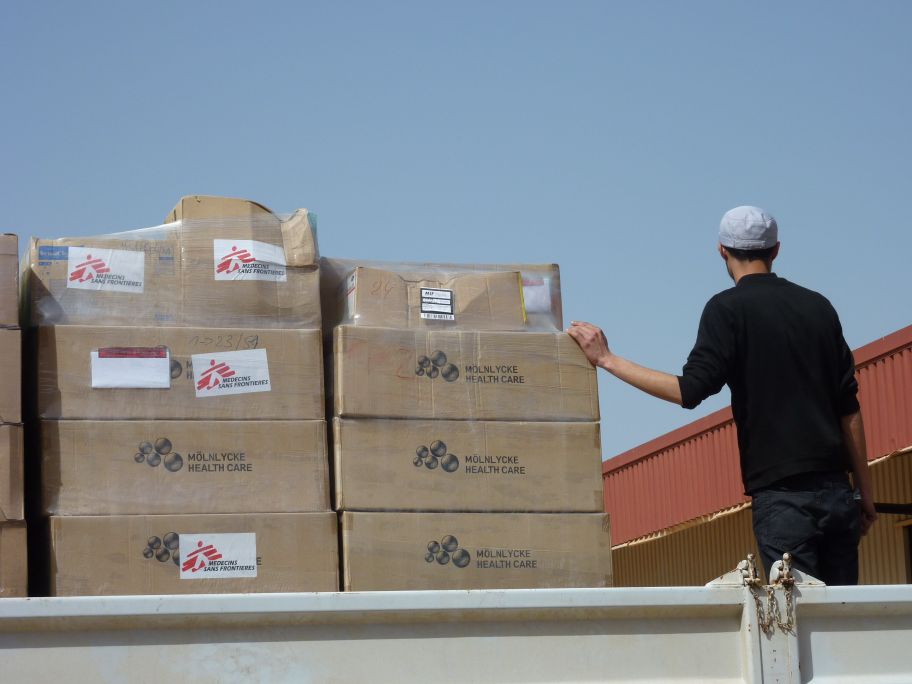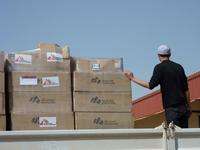As the fighting and bombardments intensify, MSF is supporting a lifeline of medical supplies running from Benghazi to other flashpoints where large numbers of wounded are being reported.

Libya 2011 © Matthieu Le Grelle
Medical supplies delivered by MSF to the Benghazi Central Pharmacy.
Doctors Without Borders/Médecins Sans Frontières (MSF) teams in the town of Benghazi, in eastern Libya, and at the Tunisian border are still working to access areas of western Libya where medical needs are reportedly critical. Thus far, insecurity and the volatility of the situation inside Libya is preventing the team from reaching areas in need of assistance. “We managed to reach health facilities in Ajdabya and Brega but were unable to continue to Ras Lanuf, approximately 450 kilometers [270 miles] west of Benghazi,” says Anne Chatelain, MSF Emergency Medical Coordinator in Benghazi.
Currently, MSF medical materials and supplies are being channeled to areas where the ongoing violent clashes and increased aerial bombardments have created the most need. A location critical to this is Benghazi’s central pharmacy, which, at first glance, seems relatively quiet. But inside the buildings, Libyan medical personnel, pharmacy managers, and volunteers are working tirelessly, supplying the entire network of medical facilities in eastern Libya with urgently needed medicine and medical materials.
To date, MSF has channeled approximately 22 tons of medicine and medical materials—including surgical sets and burn kits, dressing materials, anesthetics, and antibiotics—through this supply lifeline. Intended to address both first-aid needs and surgical care, this material is organized and then distributed to areas where it is most needed.
The Benghazi pharmacy manages to reach out to a range of health facilities, but the prevailing uncertainty and the shifting frontlines mean that this supply chain is getting dangerously long. Some of the fiercest fighting is taking place 1,000 kilometers [600 miles] from Benghazi. “One of our main concerns is that we must find a way to position the medical supplies closer to where the needs may be,” says MSF Emergency Coordinator in Benghazi, Simon Burroughs.
Day after day, people working at the central pharmacy load a steady stream of ambulances and other unmarked vehicles with antibiotics, bone fixators, anesthesia, and other urgently needed materials to treat the wounded in places where fighting has been most intense. Highly insecure roads mean that drivers take great risks to reach the medical facilities, often having to drive for hours in order to deliver the supplies.
From Ajdabya to Brega and beyond, hospitals, polyclinics, and basic health centers are all dependant on the central pharmacy for their supplies. “We were supplying medical facilities even before the events,” says one Libyan doctor. “The only difference now is that we are working 24 hours, 7 days a week.”
Currently, 11 additional tons of MSF medicine and medical materials are on the way to Benghazi. Egyptian trucks carry supplies past a “no man’s land” along the border and into Libya, where they are offloaded into Libyan trucks and dispatched to areas where fighting is causing shortages.
As the situation in Libya continues to develop, all parties must respect medical facilities, vehicles, and personnel. This is paramount because it is the only way patients will be able to receive urgently-needed medical care.




